Out of almost 20,000 cities in the United States, Washington D.C. comes in at #20 for the total population.
Many may wonder since it’s called the District of Columbia, does that mean it’s a city?
Does it belong to another state?
Washington is the city and was dubbed so in honor of the first president.
The District of Columbia was put together by Congress and it’s the district where the capital is located.
No matter where DC got its name or what permission the city’s namesake got to make it what it is today, the capital has taken on a whole new meaning in modern times.
Before you consider moving to the political hub of the nation, check out our pros and cons list for living in Washington D.C.
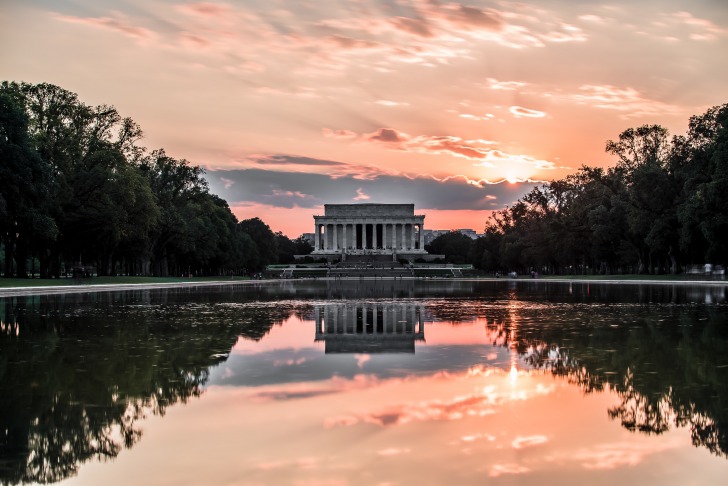
Contents
Pros of Living in Washington D.C.
1. World Class Museums
This alone might be reason enough to move to Washington D.C.
Every town has its thing. You know, that notable tourist attraction they put in their brochures.
However, very few places in the world can compete with the 19 Smithsonian museums and National Zoological Park.
Everything from airplanes to Dorothy’s ruby red slippers is located throughout DC.
The items kept in the various locations tell a story about the nation, science, and people.
That’s just the beginning of the possibilities.
2. History
Every place has an origin story, but none of them are quite as dramatic as this one.
Before the USA had an official capital, several other cities on the east coast switched duties around.
In fact, Philadelphia was again a temporary spot while Washington D.C. was being built and established.
So, practically everywhere you turn has a story.
That definitely keeps things interesting.
Did you know that the area was a swamp?
That’s why everyone leaves for the summer.
More on that later.
3. Things to Do
Washington D.C. is part of an elite club that not many cities can claim membership in.
That is because it’s got so much to do that no one who lives there could get bored.
No matter what your interest is, there’s probably a Smithsonian that has an exhibit on it.
Prefer getting outdoors?
There’s no more inspiring place than the Washington Mall to get exercise.
Prefer outer space?
The best planetarium show in the world is at the National Air and Space Museum and is narrated by astrophysicist Neil deGrasse Tyson.
4. Location
Washington D.C. sits on the cusp of Maryland and Virginia.
Beyond those two states, there are five more that are very close by.
That means the world is at your fingertips.
Getaway options are endless, it’s really a fantastic location to always find reasons to be on the go.
5. Access to Government
Having a front-row seat to where the law happens is something not enough locals take advantage of.
The votes, policies, and laws that shape our country and its culture happen here.
There are plenty of opportunities to witness these things taking place in real time when they are open to the public.
Our president, leader of the free world, lives here.
If you want to get involved, or just learn more, you have the freedom as an American to participate.
6. Diversity
One great thing about so many political offices being in town is that people come from all over the country to represent their state or district.
Having such an influx of people means the ethnic makeup is going to be more diverse than in most of the country.
DC’s ethnic makeup is 43% African American, 42% European American, 11% Latin American, and 4% Asian American.
7. WiFi
Washington D.C. feels like it was made for remote work.
The reason is the incredible number of ways to get on the internet.
Coffee shops are everywhere and basically, every building has a network you can connect to.
8. Public Transportation
Many big cities are notorious for having issues with their transportation systems.
Luckily, DC has innovative, if not punctual, minds behind theirs.
Ranked the top public transportation system in the states, citizens have voted that it is highly reliable.
So, while you may not make enough money to buy cars, you won’t have to worry about getting around.
More on that later.
Cons of Living in Washington D.C.
1. Traffic
You’ll hear from many big cities across the US and the world that will complain about how bad the traffic is.
Typically, the bigger the city, the fewer planned problems there are.
What ends up happening is there are too many cars with not nearly enough ways to get around.
This is Washington D.C.
It’s not just a big city, it’s the capital of the United States.
There are people coming from all over the world to visit, work, and live.
If you have to drive anywhere, it is one of the worst nightmare scenarios in the country.
Be prepared for highway parking lots.
2. Cost of Living
In order to keep everyone from moving to the capital, everything seems impossibly expensive.
DC is actually one of the most expensive places to live.
Some of the high prices might be a consequence of a large percentage of top earners.
Remember, there are quite a lot of government officials and representatives who make banks.
As capitalism does, the advantage is taken.
That hits lower earners of the area especially hard, unfortunately.
More people rent than own homes because the starting point is at over half a million dollars.
Even a simple sandwich at the deli can cost upwards of $18.
3. Crime Rate
One of the most populated cities in the country, unsurprisingly, has some of the worst crime rates as well.
Washington D.C. is in the top 30 of all cities nationwide when it comes to crime.
Locals have a one in 17 chance of becoming a victim of either a property or violent crime in their lifetime.
Does that have to do with an unusually high number of wealthy citizens? Perhaps.
Either way, ordinary people are most likely the ones who get hurt by these stats.
4. Summer
Summers in DC are insufferable.
There are bugs and high humidity.
The reason? This land was never meant to be lived on.
Citizens forced themselves into a swamp and were determined to call it home.
There’s a reason the governing bodies, such as congress, shut down for the summer and it’s not for vacations.
Back when America was young and the capital was being formed, no one could handle the stink and stickiness of a swamp town.
Even though DC is less a swamp and more a place to call home, the temperatures are still stifling.
5. Politics
To be fair, you can’t plan to move here without knowing this town is as political as you can get.
If you were born here, you wouldn’t have the choice to avoid it.
Either way, the political climate is ingrained in everyone who lives or visits the area.
This can make the government seem more accessible, but it also means that’s where most of the protests happen when unpopular laws or votes happen.
If you’re one of those people who say you don’t care or don’t get involved in politics, avoid DC.
6. Public Schools
In a place as wealthy as DC, most would be under the impression that there’s a lot of money flowing through the public school system.
Unfortunately, for a number of reasons, that isn’t the case.
The high earners in town send their children to private schools, so the public schools don’t get the attention from officials they need.
Just over 65% of public school students graduate, the lowest in the US.
7. Income Range
Living in a place that costs so much must mean people make more money, right?
Well, not exactly.
The average income is around $85,000.
That sounds great.
To get to that number, there are lots of $150,000 salaries mixed with $30,000 annual incomes.
That’s called income inequality and DC comes in at #2 for it.
8. Mental Health
Living in a capital city comes with a lot of baggage.
Washington D.C. has an accumulation of important people from both political parties and beyond.
Many of the buildings there serve as duty-bound locations and often are open to the public.
As mentioned, the traffic is horrendous.
The cost of living is high.
Being part of the capital can be very stressful, despite the positives.
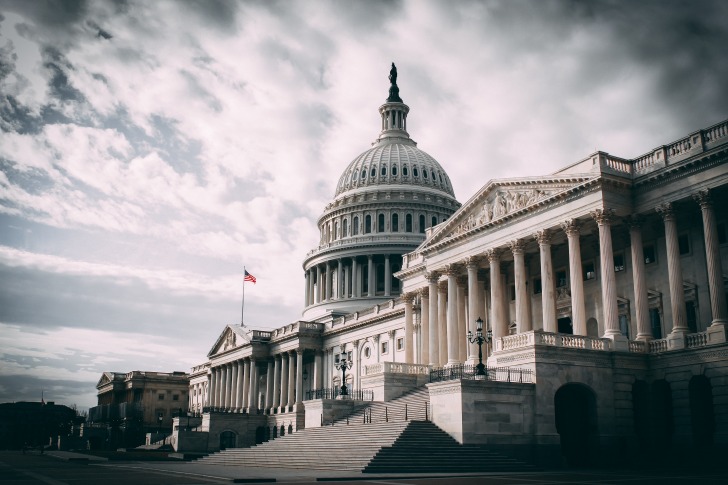
Pros and Cons of Living in Washington DC – Summary Table
| Pros of Living in Washington D.C. | Cons of Living in Washington D.C. |
|---|---|
| 1. World Class Museums | 1. Traffic |
| 2. History | 2. Cost of Living |
| 3. Things to Do | 3. Crime Rate |
| 4. Location | 4. Summer |
| 5. Access to Government | 5. Politics |
| 6. Diversity | 6. Public Schools |
| 7. WiFi | 7. Income Range |
| 8. Public Transportation | 8. Mental Health |
Washington DC Safety Overview
READ THE FULL REPORT: Washington DC Safety Review
Safety Index: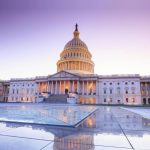
- OVERALL RISK: MEDIUM
- TRANSPORT & TAXIS RISK: LOW
- PICKPOCKETS RISK: MEDIUM
- NATURAL DISASTERS RISK: MEDIUM
- MUGGING RISK: MEDIUM
- TERRORISM RISK: MEDIUM
- SCAMS RISK: LOW
- WOMEN TRAVELERS RISK: LOW
Frequently Asked Questions
How much does it cost to see the Smithsonian museums?
There is no charge to enter any of DC’s Smithsonian locations, which includes the visitor center castle on the Washington Mall.
It was very important to the government to offer free admission to some of our most sacred treasures.
The knowledge within the walls should be freely observed by all.
Are there retirees in Washington D.C.?
Income derived from social security is not taxed, so that is beneficial to an individual watching their spending habits.
Also, the abundance of activities and museums is enough to keep any retiree busy.
Finally, free time to really enjoy all the city has to offer.
Do government workers live in DC?
More than half of those employed by the US government live outside the city.
Most often, employees live in Maryland or Virginia and commute in.
Is DC LGBT-friendly?
Very.
Even though there are two political parties heavily represented, the city still leans more towards progress and liberalism.
Actually, for years before it became a right for every American, same-sex couples came from all over to get legally married here.
Is Washington D.C. walker-friendly?
The areas around the Washington Mall are incredibly walkable.
So much to see and do kind of forces the city to make it easier to get around.
It’s also one of the most bicycle-friendly places as well.
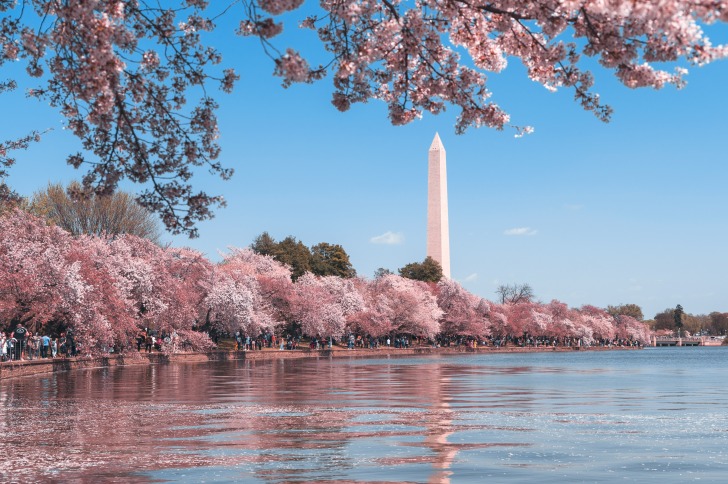
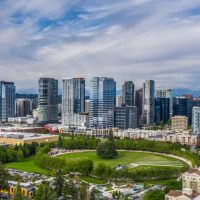
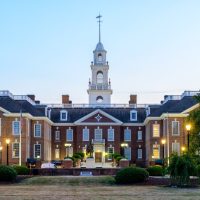
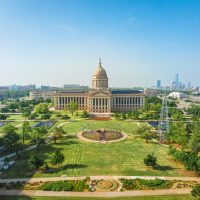
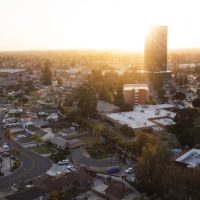
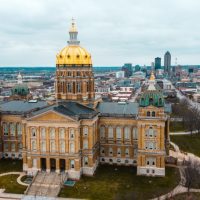
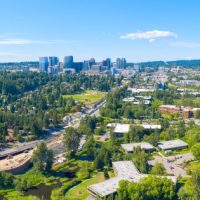





These are all facts! I got a job opportunity waiting for me in Washington and I am going to try it for career growth. The only con that bothers me is the traffic since it is a major city.
The crime rate is alarming here in DC but what I love about the place are the museums, I moved here because of that and my government job. Also, the people here are so friendly and sociable which I like the most as an extrovert.